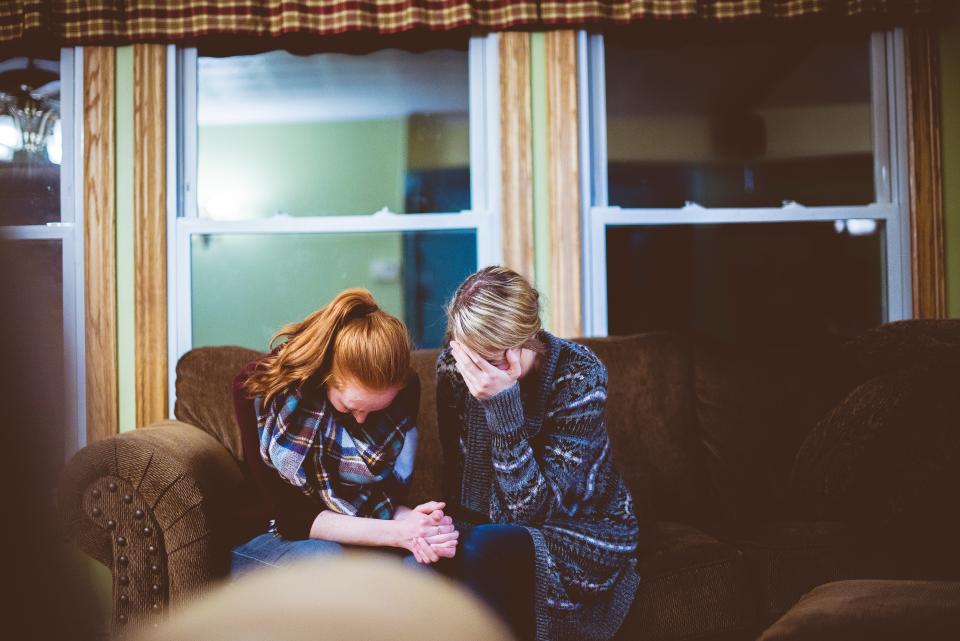There’s a story about Jesus that describes him healing 10 lepers. During that time and in that culture, having leprosy meant that you were an outcast of society in every way possible. So Jesus heals 10 lepers, and only 1 comes back to thank him.
Sometimes helping people is difficult and thankless…even from the people we help. When you’ve volunteered with Safe Families, do any of these situations sound familiar?
- You’re helping a parent in a job search. You keep giving ideas, leads and resources, but the parent isn’t following up and is missing interviews.
- The 5 year old child you’re hosting continues to struggle with defiance to basic house rules and is regularly withdrawn and sad. Mom is in a 30-day drug rehab program and unable to help.
- You’re a family coach and your host family is caring for an infant while the parent is working on securing housing. You’re helping to set up visits, but mom has been a no-show the last two times and only texts you about it after the fact with minimal regret or apology.
It’s vastly important to keep a couple things in mind with Safe Families when things are hard, when the grittiness of giving gets…gritty.
- The vast majority of parents we serve are really trying. They really love their kids and want to be the best parents they can be. They may have had poor role models or they are terribly under-supported and under-resourced.
- You, and all of our volunteers, are asked to do a hard, counter-cultural thing: care for a child like your own that you are not seeking to make your own and not get compensated for.
How are we able to maintain the right spirit, attitude and practice of serving & giving?
A couple of things can bubble to the surface that can help us: how we view ourselves and how we view others. Regarding ourselves, we need to come to grip with our bad motivations and replace them with good motivations. Some bad motivations are things like having a rescue mentality or a martyr mentality. We think we can swoop in and save the day with someone who is “disadvantaged.” Or, we want everyone to notice how much we do and how well we love other people. Both of these are rooted in pride and selfishness. A verse I cling to is 2 Corinthians 5:15, “and he (Jesus) died for all that those who live might no longer live for themselves but for him who for their sake died and was raised.”
Jesus died so we didn’t have to be selfish! Our good motivation for serving comes from new life in Jesus, remembering that he’s the savior and that his sacrifice – not ours – is sufficient. We need to change how we measure success, not based on what another person does (because we can’t control anyone but ourselves). With this mindset. Safe Families has a 100% success rate – because every hosting, friending, coaching or supporting we do is someone saying “yes”…and that type of faithfulness is successful.
Now, how do you really view others who are struggling? Are there prejudices that get exposed? Do you expect people to flip a lightswitch and suddenly change from decades or generations of unhealthy and destructive habits and untrusting outlooks? We so easily forget where so many of these families are coming from and the mountain of struggle that’s in front of them. We have to tell ourselves to be content with slow growth. We have to be vitally connected to a support community (other SFFC volunteers, friends, pastors, etc.) where we can be honest and receive encouragement and support.
I was at a conference recently and a presenter said, “Hope is found in very small things.” Not the big things, but the small ones: a word, a phrase, a better attitude, arriving on time, a quick response.
Hope is found in 1 leper out of 10 coming back to say “thank you.”
There will be many here on this earth that will use you, take advantage of you and not appreciate all you do. But one day, you will get to stand before the Lord Himself and hear “Well done, my good and faithful servant.”
by Ryan Mobley, Director of central and southern Illinois chapters

